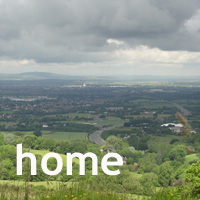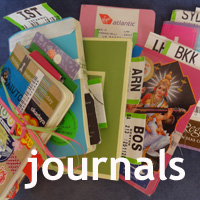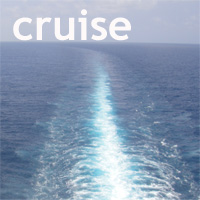Life in Brunei
 Sunday, April 5, 2015 at 4:56PM
Sunday, April 5, 2015 at 4:56PM
A day here only scratches the surface of course, but we left feeling a little more knowledgeable than when we arrived. We’d known about Brunei because it's a a member of the Commonwealth and a former part of the British Empire. The Sultan of Brunei is one of those people we’d heard of due to his links with polo, with our Royal Family and naturally , as a result of his immense wealth. But we knew little more than that.
Driving through the capital Bandar Seri Begawan from our port, Muara this morning gave us chance to learn a little more. There’s fewer than half a million people living here and those who are native to the country receive benefits which can only be envied by the immigrant workers. Native Bruneians pay no tax, receive more or less free healthcare (they pay $1 each visit to the doctor, including all medication) free education (including higher education wherever in the world they choose to study) and clearly, the standard of living is high. Most of the homes we passed had large porticos with multiple cars parked in the shade.
Because Brunei’s wealth comes from oil and gas, and petrol costs just 50c a litre, the price never having changed in the last twenty years. There’s no competition – only Shell has the licence to sell petrol here – and little public transport. So, everyone drives their own car.
When I say everyone, perhaps that’s not quite true of the people who live on the water. Many of the Bruneians choose to live in water villages where their needs have also been well taken care of.
There are schools and other community facilities to enable them to live in the same way as they always have.
And government “shared ownership” schemes entitling everyone over 18 to buy their own home by paying rent over a period of time. Here, the houses are part of a water village.
But there are similar government scheme estates on the edge of town, too.
Zul told us there are strict rules governing who may take advantage of the scheme – no buy to let and suchlike. Oh, and of course, only native Bruneians are eligible.
The country’s wealth is apparent throughout the city, where large, lavishly decorated structures stand side by side. This is part of the complex built for the last coronation of the Sultan. I’m unsure what it’s used for now, but there appeared to be no shortage of facilities for hosting these huge events.
In a week or so, there will be a royal wedding here. One of the Princes will marry a young woman from a wealthy Bruneian family with Royal connections. It’s an arranged marriage, Zul told us. So, here and there, we saw lavish preparations being made, one of which is the white structure lining the sides of the drive to the Sultan’s palace.
He lives here, in his 1800 roomed palace which is open to all Bruneians for three days once a year. Zul told us that he’s amenable to receiving letters from his people and reads them personally. If someone has a concern, then all they need do is write to him…
Because the assembly meets just three times a year and the Sultan is really the one in charge here. What he says, goes. Still, there’s a beautiful Assembly building for those meetings.
Most of the population is Muslim and since three years ago, when the Sultan introduced Shariah Law, there have been two Supreme courts here – Civil and Shariah, each of which stands in a prominent position just outside the city centre.
During the day, we visited two enormous mosques, though didn’t go into either – just looked around the outside.
I approached this one down the East corridor, noting the signs on the sides as I walked.
At first, I wondered if these were significant inscriptions, perhaps some kind of equivalent to the Stations of the Cross, which the devout would use as prompts in preparation for entering the mosque?
Then I saw the sign. “Eastern Shoe storage area”.
Duh! Of course, if the capacity four thousand people were attending a service, then there’d be a need for somewhere to store eight thousand shoes. Unless there’s a system, how on earth would you ever find your own again? So, there were four of these corridors, each lined with shoe racks above which was a number. All I’d noticed was the arabic numeral and nothing more.
Silly me!
I did notice the lovely mosaics, however, but could go no further because I wasn’t dressed appropriately.
So, what more to say of Brunei Darussalam? Well, it’s an interesting place and I’m really pleased we’ve been here. Would I return? Well, probably not in a hurry although we’ve had a really fun packed day. I think that, for native Bruneians, life is pretty good. Most work for the Sultan in some way – in government related jobs. But for the Indian shopkeepers, the Indonesian service workers and other immigrants who don’t share the same entitlements, I think life would prove to be very second class.
Of course, for one person and his family, life is tickety boo to the extreme. I’m really not sure how I feel about that.
 Brunei in
Brunei in  cruise,
cruise,  fun,
fun,  life,
life,  travelling
travelling 







Reader Comments